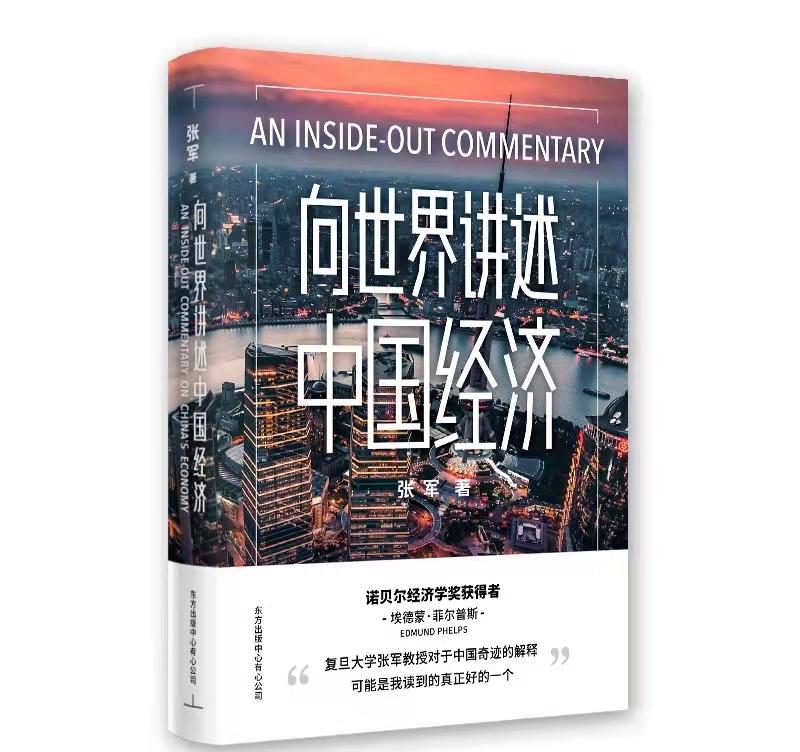China's Exchange Rate Puzzle", originally written in English in July 2005.

China's exchange rate puzzle
July 21, 2005
China's abrupt decision to appreciate the renminbi by 2.1 percent and terminate its ties to the dollar is a response to months of constant pressure from the United States. But this time the value adjustment is likely to be a one-time one-time, and the renminbi (exchange rate) may not be really free floating, because a stable currency is still very favorable to China.
Indeed, the economist Mundell, who is credited with laying the foundations of the euro theory for his study of the optimal currency area, insists that China should maintain a fixed exchange rate system as a necessary part of the current stage of economic development. Indeed, many observers cite Japan's exchange rate regime prior to the Plaza Accords of 1985 as a model, but because of China's unbalanced economic structure, the exchange rate regime raises far more challenging problems than Japan and other East Asian economies encounter.
Linked exchange rates are clearly indispensable elements of East Asia's economic take-off, and such a system is consistent with the region's export-oriented development model. But the effectiveness of a fixed exchange rate depends on the impact of the development of exports on domestic industry and even on the country's economy as a whole. If the growth in trade drives the growth of the domestic non-trading sector, the fixed exchange rate will not put pressure on the external balance of payments, because import demand is also rising. Under such circumstances, the adjustment of the exchange rate will not have a serious impact on the development of the economy. Economists in Japan, for example, argue that the Plaza Accord, which called for an "orderly appreciation" of non-dollar currencies against the dollar, was a natural consequence of high national income. This is also one of the main reasons why Japan accepts changes in the exchange rate.
But the current situation in China is very different. The per capita national income was only $1,000 instead of $15,000 during the period when the pressure to adjust the exchange rate was only $1,000, so China still needs to go through a long period of rapid economic growth to reach the stage when Japan allowed the yen to adjust the exchange rate that year.
Another important reason is that, unlike other East Asian economies in the early days of economic take-off, China's export growth over the past 10 years has not been closely linked to the development of the domestic non-trade sector, and export growth has been mainly driven by foreign direct investment (FDI). China has 46,000 foreign-owned enterprises, most of which are concentrated in the processing trade sector, thus increasing the import intensity of export products and cutting off the foreign trade sector from domestic industry.
The regions benefiting from high-density FDI have become the wealthiest, widening the gap between regions, especially between east and west. It is unrealistic to determine the exchange rate of the renminbi solely on the basis of the income levels of the relatively prosperous eastern coastal regions.
To be sure, China has accumulated a large surplus of income and expenditure, indicating that the value of the renminbi is greatly underestimated. But the surplus only masks the structural problems of China's domestic economic sector and poorer regions. If the exports of foreign-funded enterprises are subtracted from the total volume of trade, the surplus is gone, because the total balance of commodity trade and the trade balance of services generally have a deficit.
In short, the export sector, which is disconnected from the rest of the Chinese economy because of the absolute superiority of FDI, is responsible for the illusion that the renminbi is undervalued. Although export growth has been enormous, now reaching 70 percent of China's GDP, it has not had a boost to other sectors of the economy, as exports are limited to foreign-owned processing trade enterprises. If the growth of exports is not limited to such enterprises, then China, which has a very large domestic economy, will never accumulate such a huge external surplus.
As long as Asia continues to use the dollar as its foreign exchange reserves – a policy that will continue to bring huge benefits to trade and economic development – China's desire to maintain the stability of the renminbi will continue to provide a great advantage for trade and economic development.
Professor Zhang Jun, born in 1963, is an economist. "Yangtze River Scholar" Distinguished Professor of the Ministry of Education and selected as the leading talent of the national "Ten Thousand Talents Plan". He is currently a senior professor of liberal arts at Fudan University, the dean of the School of Economics, and the director of the Center for Economic Research of China.
Editor: Zheng Yawen
Editor-in-Charge: Xibin Zhang